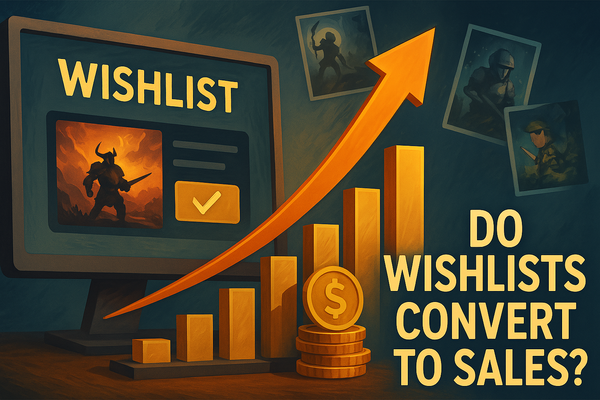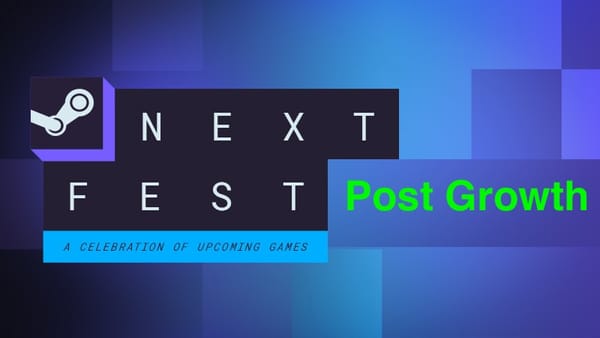Common Misconception: Someone Is Going To Steal My Game's Idea
Discover why sharing your game idea is essential for success in game development. Learn how feedback, iteration, and marketing outweigh fears of idea theft. Explore insights from entrepreneurship and venture capital to build something gamers truly want. Empower your game’s journey with this guide!

This article is part of a series published by Glitch Gaming addressing common misconceptions in game marketing that we often see perpetuated online, helping game developers better market their games. The common misconception being addressed here is that someone might steal your unique game idea, so you should keep things a secret.
As highlighted by this Reddit post, some developers fear their ideas being stolen.

As a result, they are hesitant to share the game they are building, want NDAs signed just to talk about their game, etc.
In this article, I will draw on my personal experience in both entrepreneurship and venture capital to explain why the fear of someone stealing your idea is unfounded and how not sharing your game idea can actually hurt you in creating a great game.
My Background in Entrepreneurship and Venture Capital
This article will break from my usual format and take a more personal approach. I’ve been an entrepreneur for a little over 18 years now, starting at the age of 19. You could argue it started when I made my first plug-in for a game at 14 as a solo dev, but since it had no business model, I don’t count that. Over the years, I’ve worked on many ideas, joined numerous startups, talked to venture capitalists, and almost became one myself when I handled deal flow for an organization I created for startups.
One of my most unique attributes is being highly technical, having taught myself C++ at 12 years old. This dual perspective—combining the business and technical sides—has shaped my approach. I’ve participated in programs like Y Combinator Startup School (before it was public), Plug In South LA, Techstars, Google Sales Academy for Founders, and BUILD by The Fund and I've raised almost $500k to date. I’ve even helped some of these programs with their vetting processes to select companies, which brings me to gaming.
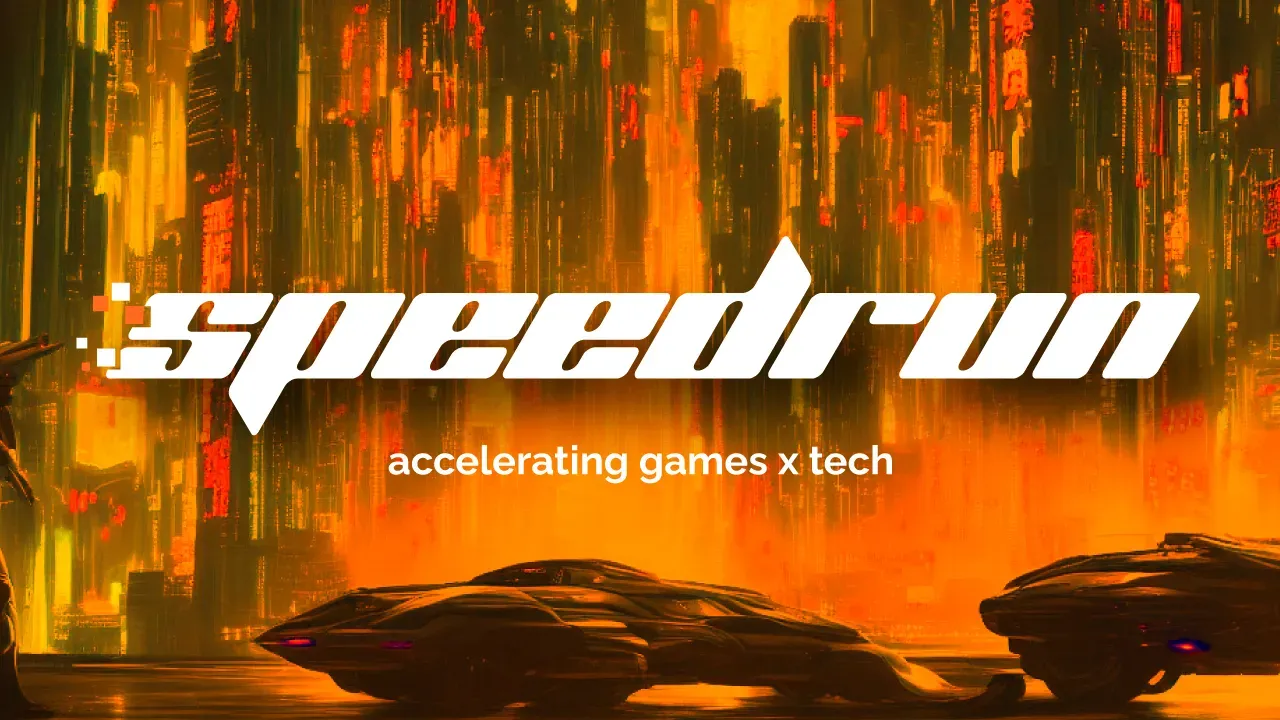
One popular program for games that many people know about is Speedrun. Started by Andreessen Horowitz (A16Z), this accelerator program for games provides $750,000 and numerous other resources to help companies develop their ideas. The program receives a large number of applications—over 4,000 for about 30 spots per cohort (don’t quote me on this exact number).
What I’ve Learned About Ideas
Through my involvement in application review processes for such programs where I've reviewed hundreds of applications on a programs behalf, I’ve encountered many companies with similar ideas, and almost all of the claim they are unique or the only one. This repetition drives home a critical point: no idea is truly original. While this may be a hard pill to swallow, somewhere out there, someone has thought of an idea very similar to your game.

Looking at the numbers, this makes sense. In 2024, there will be around 15,000 games that will be released; even more are in active development. About 43% of games never launch, so we can estimate that roughly 21,000 games are created annually. Stretch this over 10 years (though games have been developed for much longer), and we’re looking at around 200,000 games of various types and genres. Your game, while likely to be great, is not the first of its kind or entirely unique.
This is why investors or publishers won’t sign NDAs—not just because it gives them leverage in the relationship, but because chances are high they’ve seen a similar game before. Ideas are a dime a dozen; a high-quality game is much harder to find.
To be crystal clear: just because your game isn’t entirely unique doesn’t mean it isn’t great or necessary. Your game is still valuable and worth creating.
What’s Important When Developing a Game
I think Y Combinator puts it best: “Build Something People Want.”
While it sounds simple, this principle is more complex when applied to games. Breaking it down, the essentials are:
- Market Research: Understand your game’s market. What are the trends, price points, target audience, etc.?
- Team: Do you have the right team? If you’re a solo dev, do you have the skill set to build the game?
- Execution: Can you/your team finish the project? Remember, 43% of games never see the light of day.
- Go-To-Market Strategy: Even when the game is complete, it still needs players. Do you have a publisher or a solid strategy to reach your audience?
I really want to focus on the 43% of games that fail in the development stages.
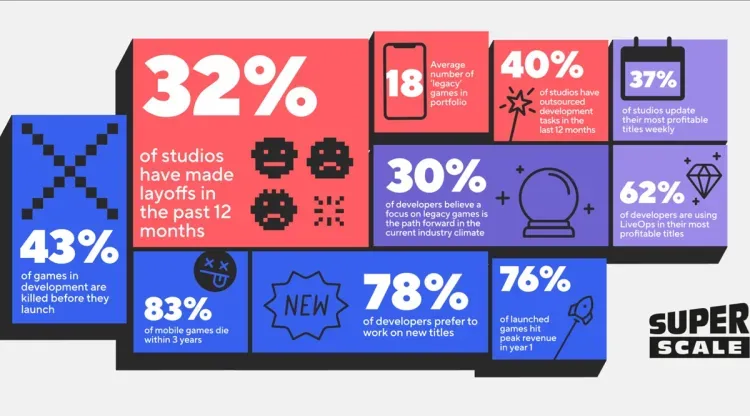
Even if someone were to “steal” your idea, there’s almost a 50% chance their game will never be completed. And even if they complete the game after years of development, there’s still a 57% chance it won’t earn more than $1,000 simply do to their go-to-market strategy.

Without those four basic elements, even the best ideas won’t succeed. So just because someone hears your idea doesn’t mean they can execute it successfully. Taking an idea, building a team around that execute, and then bringing that game to market successfully is incredibly difficult.
Why Building in Stealth Hurts Your Game
Returning to the concept of “Build Something People Want”: there’s only one reliable way to achieve this without sheer luck—getting feedback from people. And getting feedback means sharing your ideas.
From my experience, I’ve never seen someone who is receptive to feedback stick to their original idea unchanged (keyword is receptive because of I've plenty of stubborn and uncoachable people fail) . Here’s what the journey typically looks like:

And it normally follows the path in a repetitive cycle:
- Share your idea.
- Gather feedback through playtesting, devlogs, and discussions.
- Iterate and pivot where needed.
The feedback you receive while building—whether through playtesting, devlogs, or sharing your progress—will refine your game, help you market it, and attract early adopters.
There Can Be More Than One
We don’t live in the world of Highlander, where “there can be only one” and you have to go around chopping off people's head to maintain your position. Is there only one Fortnite, one Final Fantasy, or one Dota? No! People play variations of these games from different publishers and developers over time. I myself am a huge fun of the Tales series and Dragon Quest series, which can be considered alternatives to Final Fantasy. I would even argue Tales of Symphonia might be the best JRPG of all time, but that is a different discussion.
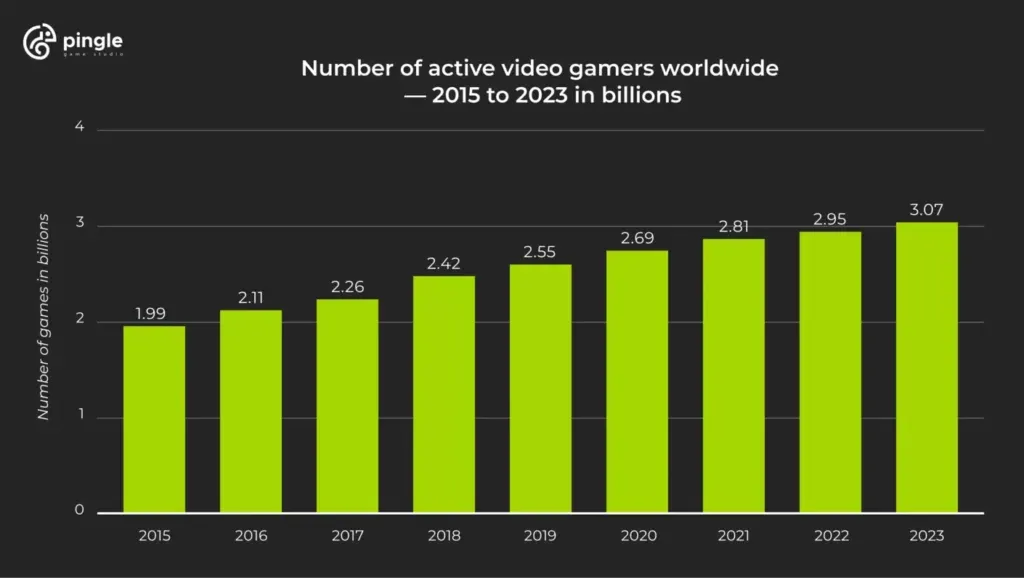
Consider this: There are 3 billion gamers worldwide—one-third of the world’s population. And the number of active gamers worldwide is only growing. There is an audience for your game that will appreciate and play your variation. They’ll be excited to be part of your journey as you grow.
Get Feedback and Create a Great Game
The gist of this article is simple: seek feedback, iterate as needed, and create your game. No one is going to steal your idea, and even if they try, the odds of their success are slim. On the other hand, keeping your game a secret stacks the odds against you. Share your progress, make necessary changes, and build something people truly want.
About Glitch Gaming
Glitch Gaming is a marketing platform designed to help game developers better market and promote their games. We offer game-specific resources, including access to gaming influencers, testers, developer logs for social content, gaming newsletters, showcases, and more. Additionally, we provide a variety of free resources and guides for indie developers. Come check us out!


